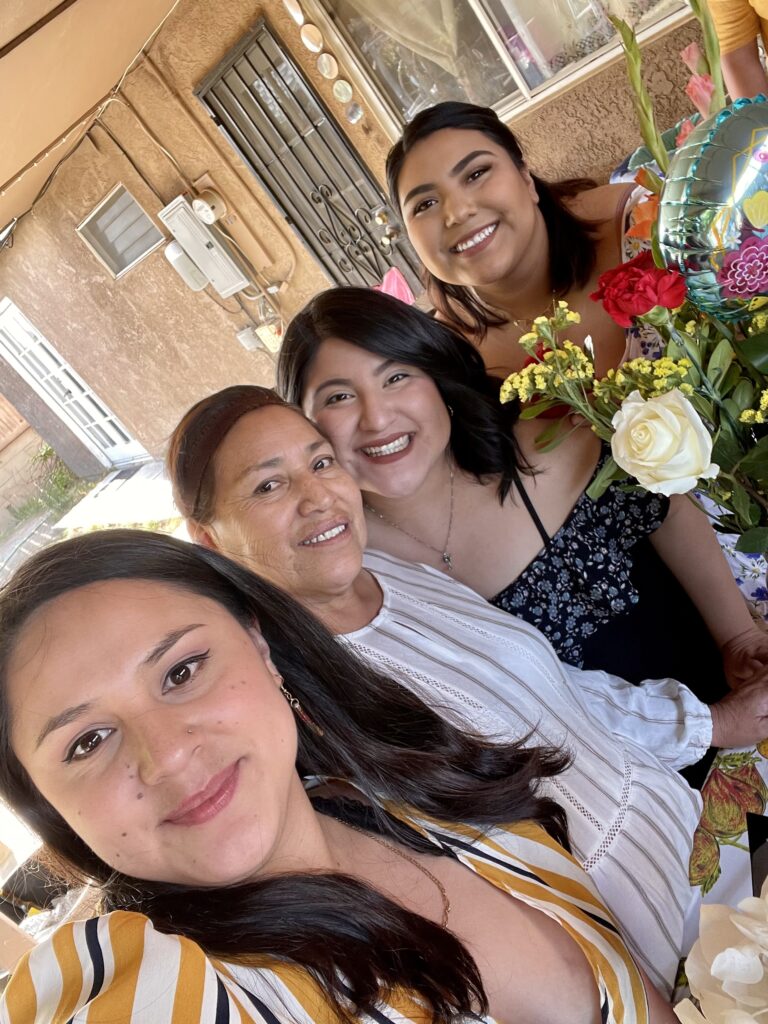
Ashley De La Rosa set her mind to creating a better future for herself and implementing the change she wished her mother had when she was younger.
She attended the University of California Santa Cruz majoring in sociology with the end goal of being a lawyer. During her senior year of college, she realized she wanted to work in education. She was tutoring for AVID and was asked to help translate for an ELD class where the majority of the students were Spanish speaking but the teacher did not speak Spanish.
After this experience and seeing the teacher not be able to connect with her students, she decided to add education to her degree
“I decided to pick up education because I thought well I can support and be that teacher,” said De La Rosa.
Going away for college was a good experience for her because she felt like she was able to grow and find herself beyond traditional roles and expectations. However, she described being in Santa Cruz for school as a culture shock as there weren’t as many Hispanic or African American students in her classes.
“Even though it was very liberal and it had become a Hispanic serving institute my second year the population of Latinos at UCSC was still very small compared to what I was used to in Kern County,” said De La Rosa.
Despite the demographics being different from what she was used to she was able to explore her identity and have her eyes open to different things from classes like gender identity.
When she came back to Kern County she questioned, even more, why there were so many disparities and not as many opportunities for people as she saw back in Santa Cruz and the surrounding cities. While seeing that difference can make some people want to leave it is exactly why De La Rosa came back.
“The class with the newcomer students and thinking about all of the challenges they were facing and knowing that in my community there wasn’t just some of them it was a lot of them suffering from the same thing,” said De La Rosa. “I wanted to come back to become a teacher here and make that change because I believe that I should prioritize my community because nobody else will.”
De La Rosa worked in a Kern County school district when she came back but quickly saw some situations she didn’t really like. One thing that stuck out to her was seeing a student get kicked out of class for eating during class.
Working in the school when and seeing things like this made her reflect on a term she learned in college “the school-to-prison pipeline.”
After that, she applied to be a program associate at the Dolores Huerta Foundation (DHF) through the guidance of the foundation she feels like she was able to grow. She is now the Education Policy Director for DHF and was very honored to be promoted to that position.
Although she is not a teacher she feels that in her position at DHF, she is doing the work she set out to do with helping the youth attain an equitable education. She also loves being able to help youth in elevating their voices.
De La Rosa reflected on when she was working the schools and a student told her they felt like they were in prison because they had to walk with their hands behind their back and weren’t allowed to talk.
“That’s why it’s so important. The youth are the ones living this experience. They’re the ones being affected by it. If a student of 8 years old is telling me they feel like they’re in prison, the system is built to make them feel like they’re in prison,” said De La Rosa. “So what can we do to provide them the agency to be creative, to feel free, to be liberated, and to be able to have an education that is welcoming to them instead of making them feel like it’s a punishment?”
One reason why creating this environment for youth is important is that De La Rosa did not feel like she had that in school for the most part. She remembered having to advocate for herself in high school to be placed in a biology class. She knew is was needed for the A-G requirements to get into a university however they did not want to automatically put her in the classes and asked her why she even wanted to be in the class.
De La Rosa did however have an advisor who mentored her through high school and De La Rosa stated she’s a big reason why she went on to Santa Cruz and to be in leadership positions.
To the youth who are currently struggling with wanting to advocate for themselves De La Rosa wants them to know their feelings are valid.
“You’re not wrong and your feelings are valid. If you have a dream, as cheesy as this sounds, you really have to not just let it be a dream but act on it. Don’t be fearful of what can happen,” said De La Rosa. “Know that as many no’s as you get there will be one yes and there will always be someone there to support you. Surround yourself with positive folks. Eliminate things that will potentially harm you.”

While De La Rosa mainly started this work after college she is not new to the life of Advocacy. She remembers being a child and going to protests at Jastro Park with her mother. In fact, her mother and the other women in her family are at the base of a lot of her work.
Being raised by a single mother and having two sisters she has always seen the resilience of women. She and her sisters have even thought about ways they’d love to work towards uplifting other women like starting their own non-profit organization one day centering around women. She is also surrounded by many women in her current work and gets to see the way that change starts to happen when women come together.
“Being able to stand together would be so powerful and we’re seeing what happens when women take a stand together. Thinking about our volunteer base at DHF all of them are mostly women, mostly mothers that want to fight and who have a job, who have to maintain their household, and who aren’t conforming to the patriarchy but fighting in their own ways. It’s kind of like how do I support you? Acknowledging that there is no description of how to be a woman. There’s no one right way to be a woman,” said De La Rosa.
Outside of work, De La Rosa enjoys playing soccer, dancing, and spending time with her family.
She loves when her family is able to find time to eat with each other and incorporate her grandmother in what they do like making sure to get recipes from her grandmother.
“I think one that gets us all together, all women including my aunts and everybody is definitely tamales. When it comes to my grandma’s birthday or my grandpa’s birthday we all get together and just like this big table and one’s doing the masa. I think that’s really where I’m able to listen to my aunts take it in and like wow they’re all so different but also the same.”